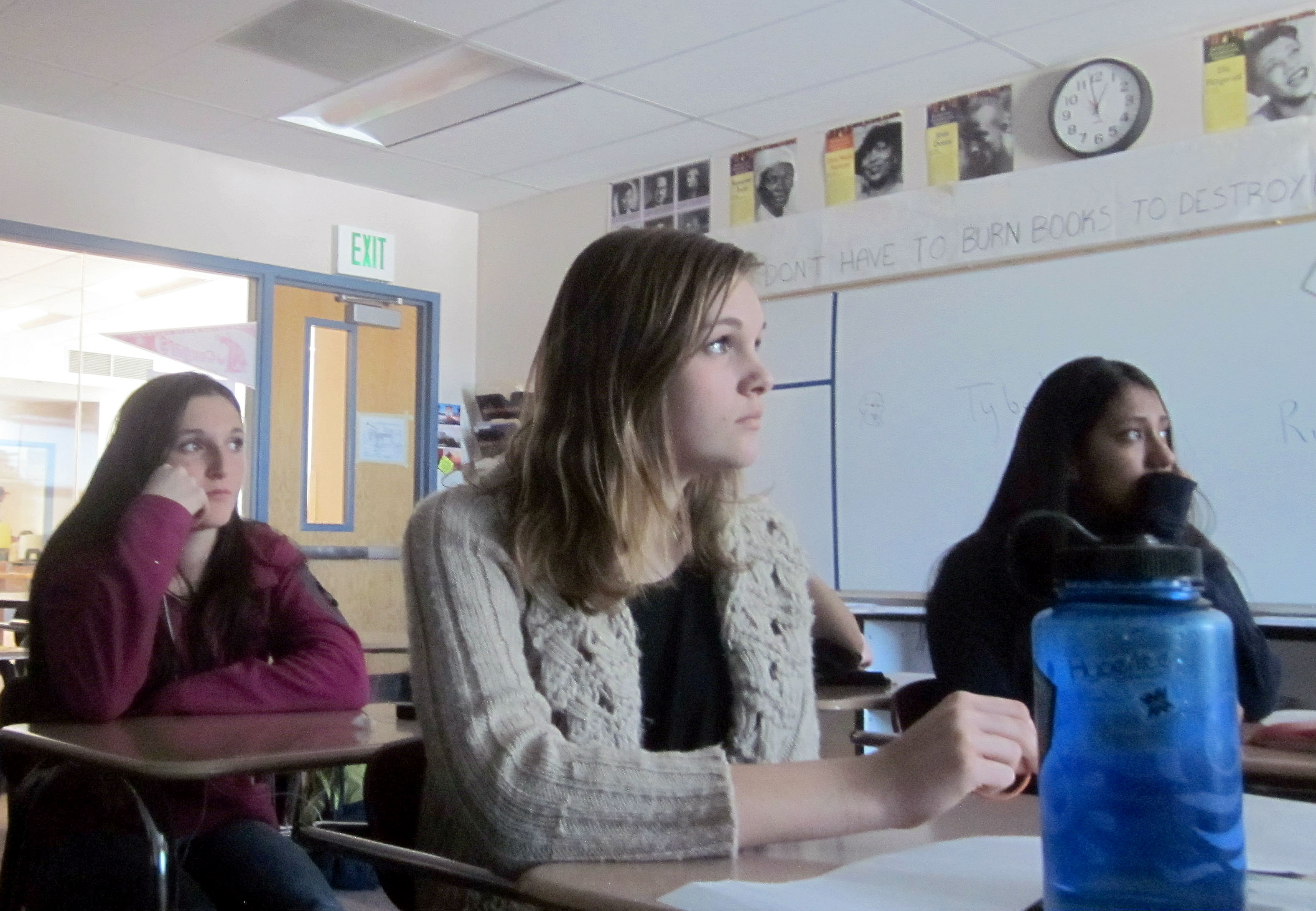
More than half a million Colorado students will have completed the first component of the state's new and controversial standardized tests by Friday.
That's right on track for the state Department of Education; they were expecting 1 million tests to be taken, and as of Thursday afternoon, 948,102 tests were completed. But the department cautions that these numbers aren't a final, full picture for the Partnership for Assessment of Readiness for College and Careers (PARCC) tests. The tests replace the old Colorado Student Assessment Program.
“As we have learned more about the testing system and how administrators are using it, it has become clear that the numbers reported each day are very preliminary,” said the Colorado Department of Education’s Dana Smith.
Crunching those numbers
Smith says the numbers provide a sneak peek into participation, but not the full picture, and here’s why:
First, the numbers don’t reflect students who are taking the paper version of the test.
CDE provided all students the opportunity to take paper versions of the math tests. All third-graders could take paper versions of both English language arts and math. Approximately 15 percent of students in Colorado were expected to take paper versions.
Second, districts will have a number of opportunities to review their data, correct information and finalize participation rates over the next several months.
Final data on participation is expected to be available in August, Smith said.
Third, the department estimates the number of tests completed will include up to approximately 16,000 tests that were “marked complete” by an administrator, rather than completed and submitted by students.
Tests “marked complete” by an administrator include:
- Tests completed by students but not submitted correctly.
- Tests started but not completed because the student became ill or for some other reason did not complete the test.
- Some tests not started by a student but the administrator needed some way to account for the student in the system.
- Duplicate records.
CDE says it hopes to have the initial clean-up of these “marked complete” tests by the end of April. Final participation rates will be available in August -- students begin taking a second round of PARCC tests in May.
Opt-outs
Earlier this year, 20 school districts asked CDE to issue waivers that would exempt them from the first part of PARCC tests. They didn't get them.
But some students and parents have opted out of the test themselves.
For example, 40 percent of Boulder’s high schoolers didn’t take the PARCC test. In Buena Vista public schools, a third of students in grades three to 11 opted out. In the Grand Junction area, 100 parents opted out their children in the 14,000-student District 51.
CDE is not collecting data on parent refusals, but instead, has asked Colorado’s 178 school districts to do it.
Lawmakers consider reducing testing
State lawmakers are aware that these newest tests are unpopular and there are several pieces of legislation proposed to lessen the burden on students.
Under Senate Bill 223, schools and teachers won’t face penalties if participation in tests drops below required levels. Currently, if 95 percent of students don’t participate in state testing, schools, districts and teachers can face sanctions.
“Schools should have meaningful dialog with parents about standardized testing that does not include the unproductive threats of harm to funding, accreditation, and teaching careers,” said bill sponsor Sen. Nancy Todd, D-Aurora. “We need to build public confidence in our schools by using test results to improve student learning and the quality of teaching. “
Next week, state lawmakers will consider two new school testing bills.
House Bill 1323 would eliminate state tests in in 11th and 12th grades, with ninth grade optional. It also holds schools and districts harmless from state accountability measures through the next school year.
Senate Bill 257 mandates only one English and Math test in high school. The bill would let districts use some local tests instead of state standardized tests. Districts wouldn’t have to tie student test scores to teacher evaluations for another three years if they choose. That bill will have its first hearing on Thursday.








